There are things we say all the time or use when communicating with our mates (or writing blog posts) that just sound too informal or over-opinionated in an academic essay. Avoid these things and although we can’t guarantee a first, you can at least avoid some potentially embarrassing negative feedback.
Contractions
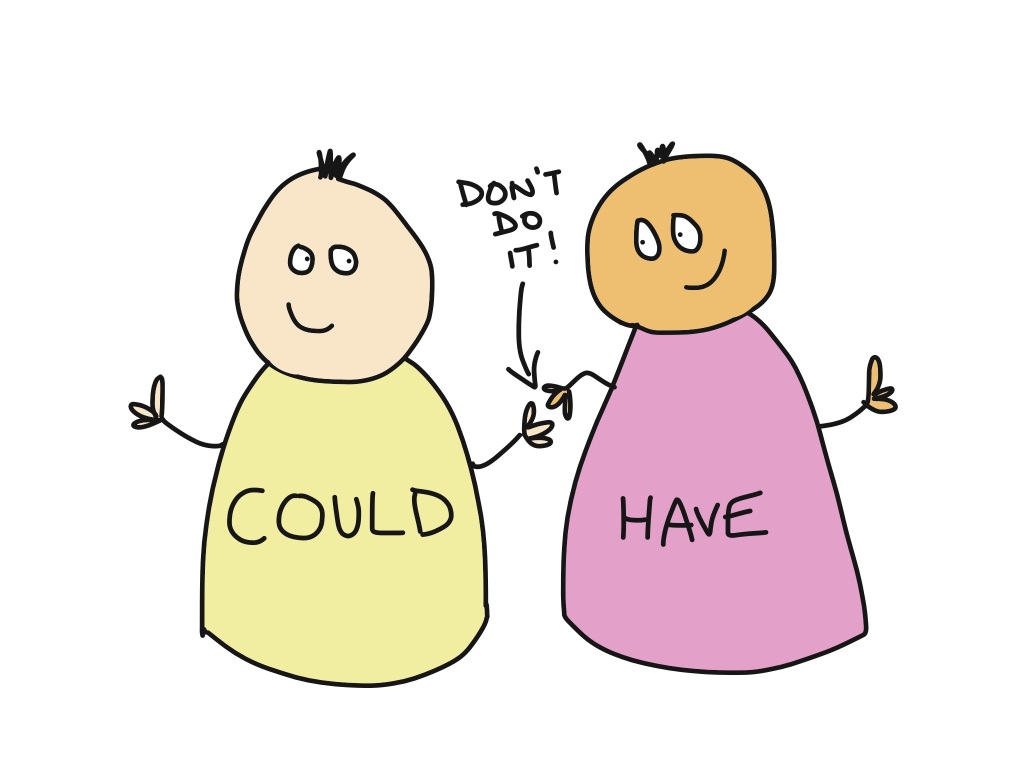
No, not what you get before you give birth! Contractions are things like don’t, couldn’t, would’ve etc. – any word that is actually two words shortened into one. You should write it out in full: “the student could not understand how unprofessional it would have been to use contractions”. Please note that when the contractions “would’ve/could’ve” are written in full they become “would have/could have” and NOT “would of/could of”.
!
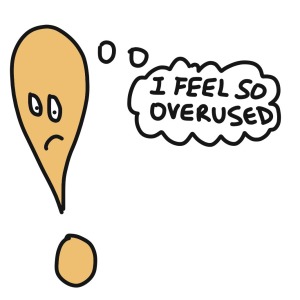
The exclamation mark has no place in academic writing. Its proliferation in texts and blog posts (yay!) has led to it creeping into essays which are, after all, supposed to be carefully considered arguments, not shouted statements. Although used in informal writing to denote excitement, surprise, conviction etc., they are actually only supposed to be used for exclamations (who knew? Perhaps the name was a giveaway?) like
watch out!
The only time you should use them in your essays is when they are included as part of a verbatim quotation.
Got/Get
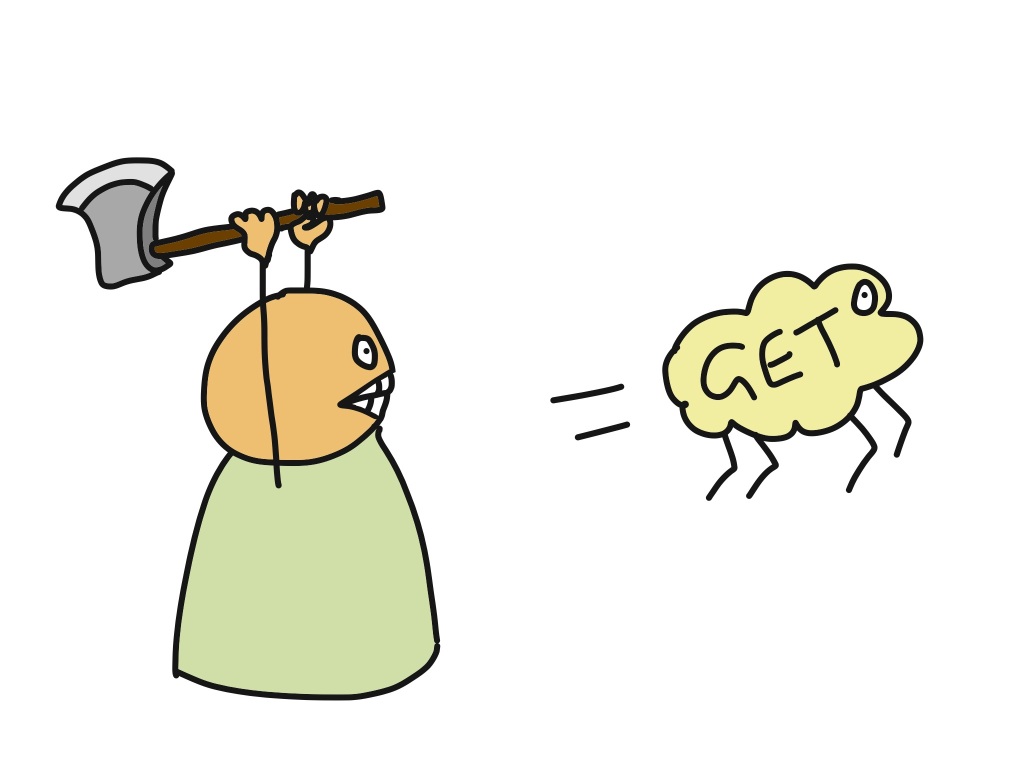
Avoid this verb. Axe it violently from your written vocabulary. Think of better ways of saying something if you find it creeping in. Sometimes it is as easy as replacing it with acquire, find or become; sometimes you need to use a more specific verb like bought, understand etc.
Colloquialisms and slang
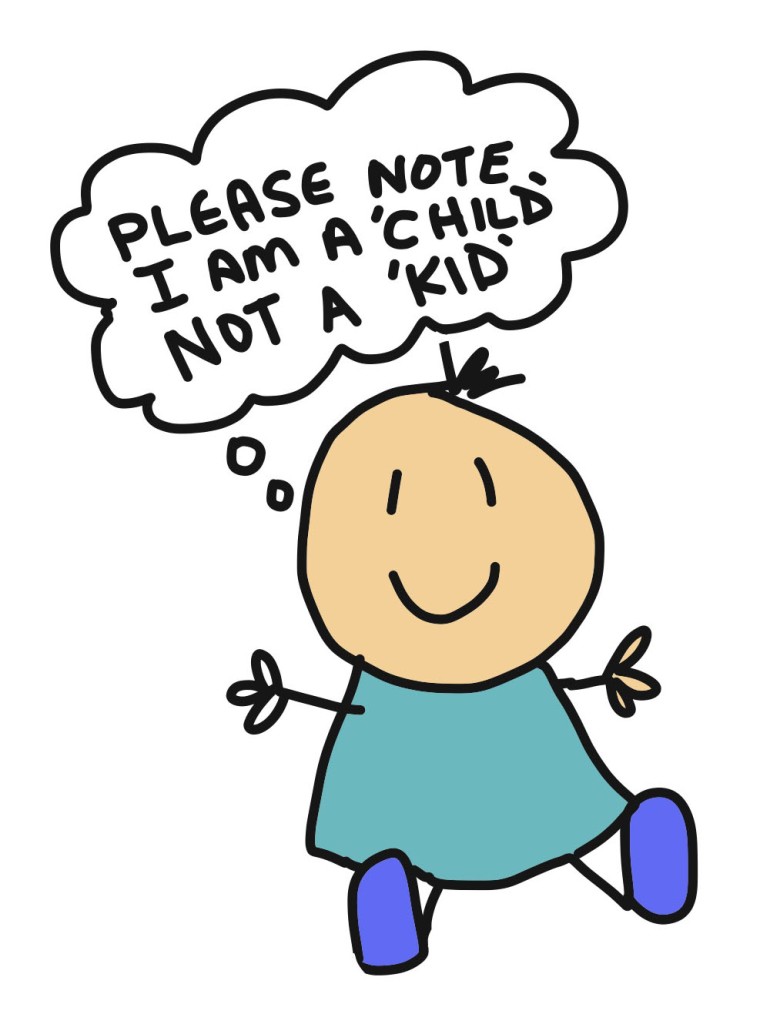
Colloquial and slang words are used in informal speech to replace more formal equivalents. Colloquial words are mostly, though not exclusively, regional with different dialects having their own examples. Slang is often associated with specific groups (e.g. teenagers, gangs). Examples are: “teen mums” (use teenage mothers), “kids” (use children), “hiring and firing” (use recruitment and dismissal). There are, of course, hundreds more.
Clichés
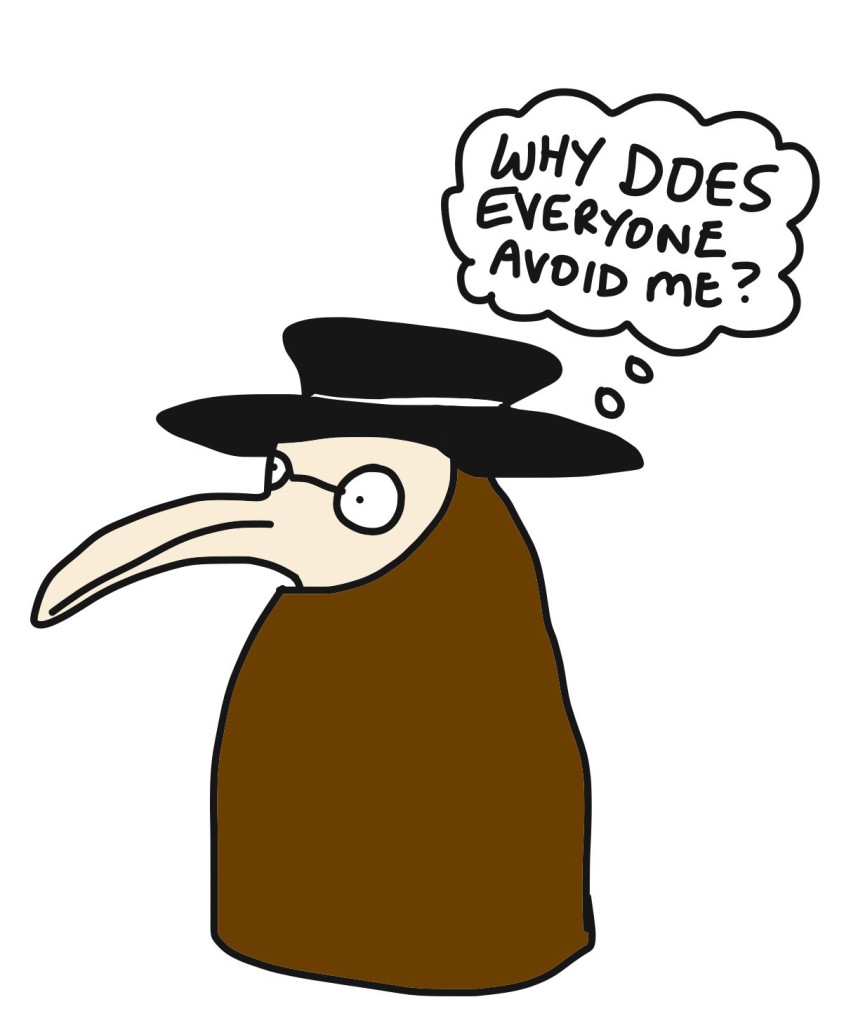
At the end of the day academic writing is a far cry from normal writing. To add insult to injury you often need to go back to the drawing board with your writing style and start with a clean slate. Please give me the benefit of the doubt and trust me when I say you should avoid [clichés] like the plague. Please don’t write like this! Here is a list of clichés to avoid (regardless of the plague). The site is about creative writing but the message is the same:
681 clichés to avoid in your creative writing.
Stage Directions

Although you may get away with these in your first few assignments, try to wean yourself off using phrases like “In this essay I will discuss…”, “this section of the essay will consider how…”, and even “in conclusion…”. Although these phrases are a form of signposting (good) they are just too formulaic (bad). To be honest, some tutors don’t mind them, but really they are just using up precious words and adding nothing to your overall argument. Instead of wasting words telling the reader that you are about to discuss something just get on and discuss it! We have already written a post about signposting so check that out.
Unhelpful transitions
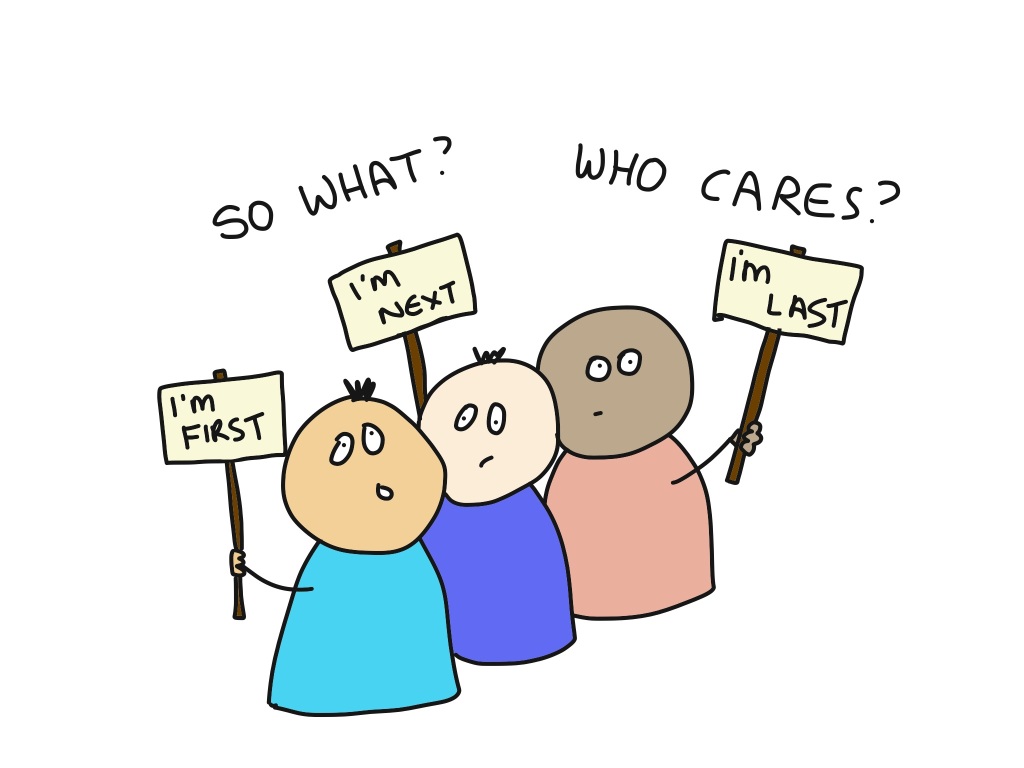
This is a pet hate of this writer and it ties into the last point, but I really don’t like transitions like firstly, secondly…lastly. Not only are they not very nice words (especially firstly – yuk) they are simply stating where the points appear in your essay; not why they appear in that order or how one relates to the other points. Much better are words/phrases like in addition, similarly, conversely etc. If you have to list, then perhaps you could consider initially and finally rather than firstly and lastly as they are sooooooo much nicer words (feel free to ignore me; I may just have a problem). Again, check out our earlier signposting post.
Sweeping/unsubstantiated statements

“Most authors suggest that…”, “everyone is aware that…”, “the majority of people think that…” These are all sweeping statements that you cannot possibly substantiate. In the case of “most authors” you are suggesting that you have read everything ever written on a topic and have statistically analysed them. (I think not!) Instead you can say “several authors suggest that…” and make sure you evidence this with the relevant citations. The other two examples are trickier and should be avoided completely. Instead use a phrase like “the literature suggests that…” and make sure you back this up with specific examples and citations.
This is adapted from a post originally published in November 2015
